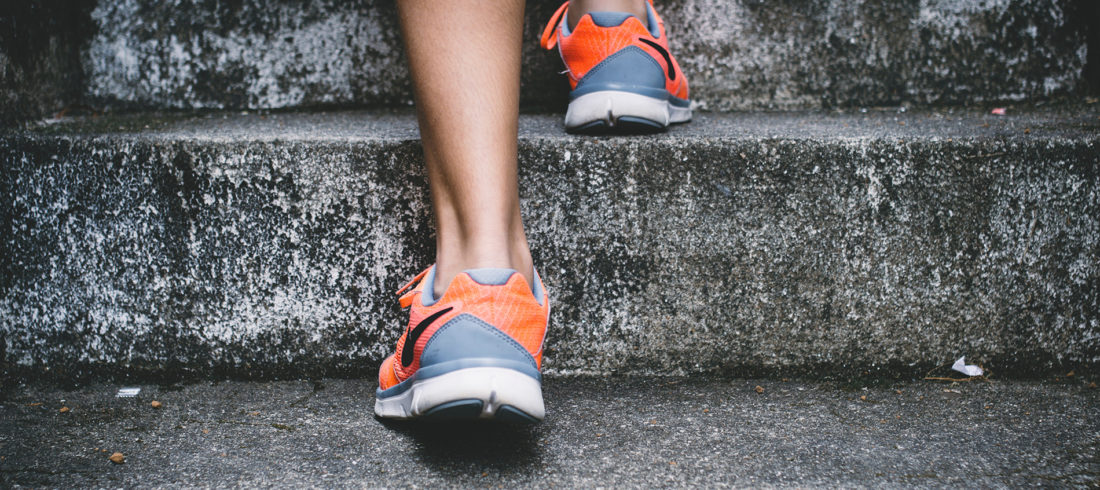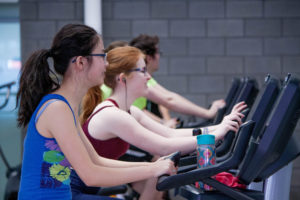Most people can benefit from moving their body
Whatever your age, there is a proven benefit to taking regular exercise. It’s not just athletes who need to build physical activity, everyone should keep their bodies working in order to:
- Stimulate the body’s natural processes to repair and maintain it and keep it healthy
- Maintain bones, joints and muscles
- Keep your heart healthy
- Prevent high blood pressure
- Maintain a positive level of energy
Building and maintaining stamina, strength and resilience is important and, indeed, vital for long term health, as well as reducing pain and stiffness.
Are certain gastrointestinal disorders an exception to the rule?
There is conflicting information about the impact of exercise on some GI conditions. In some cases doctors and researchers have good data to support mild exercise.
Mild exercise is good for:
- Increasing endorphins and a feeling of well being
- Relieve symptoms of stress which can impair GI health
- Lowering the risk of colon cancer
- Strengthening your digestive tract
- When your body moves, so does your blood, improving overall circulation
- Making your muscles work more efficiently
- Strengthening your immune system
- Speed up the metabolism and cardiac function
- Reducing constipation by helping you pass a bowel movement more quickly than if you were sedentary
- Stimulating the amount of positive bacteria which can help:
- Reduce obesity and metabolic disorders
- Reduce risk of gastrointestinal disorders and colon cancer
GI conditions that exercise can help
In some cases, exercise can help to ease gastritis. Gastritis is a general term for a group of conditions that are united by one common symptom: an irritation or inflammation of the lining of the stomach. The most common cause of gastritis is the same type of bacteria (helicobacter pylori) as the one that is now known to cause stomach ulcers. It can come on suddenly or cause problems over time. Gastritis symptoms include gnawing pain, indigestion, nausea and vomiting, loss of appetite, heartburn and gas. However, it is important to see a gastroenterologist or your primary care doctor to ensure that you do have gastritis and not another condition. Left untreated, gastritis can lead to cancer in the long term, so be careful. However, if you have a confirmed diagnosis of gastritis, exercise for at least 30 minutes several days a week can help in the following ways:
- If you are overweight, gastritis symptoms such as bloating and acid reflux are more likely. Exercising to assist with weight loss will not only relieve the gastritis, but will help you shed pounds and burn calories. Don’t exercise on a full stomach. This can make you feel uncomfortable or ill.
- Improving delayed gastric emptying, where undigested food moves too slowly through the digestive tract, causing symptoms similar to gastritis, including nausea and bloating. According to the British Journal of Sports Medicine, men who exercise may have a lower risk of duodenal ulcer. Ulcers are open sores that can occur in the digestive tract and which can be a side effect of gastritis.
GI conditions where the jury is still out on the benefits of exercise
There are some conditions where vigorous physical exercise can actually cause some negative impacts. Evidence of the positive effects of exercise is not conclusive in diseases such as:
- Gastroesophageal reflux disease (GERD)
- Gastric or pancreatic cancer
- Ulcers
- Non-alcoholic fatty liver disease
- Gallstones
- Diverticular disease
- Irritable bowel syndrome
Important facts to remember when beginning an exercise program
- Schedule a visit to your physician. Yes, we know that all exercise regimens say that, but it is very important if you have ongoing symptoms of a gastric disorder.
- Start gradually. Don’t go from 0-60 overnight – Your body will thank you for it. What’s more, if you don’t put yourself into agony, you’re more likely to stick with it.
- Be sure to eat a healthy, high-fiber diet.
- Keep hydrated. Dehydration is a leading cause of exercise-related GI problems. It may result in constipation, acid reflux, and reduce the beneficial bacteria in your intestines, leading to malabsorption of nutrients and oxygen of the food you eat.
- For many conditions, exercise will help you feel good, or at least better, so move your body several times a week. You’ll be surprised at the positive results.
When in doubt, see a gastroenterologist
At Premier Medical Group we have 14 GI specialists who can help you get a correct diagnosis, recommend treatment, and clear you for exercise.


